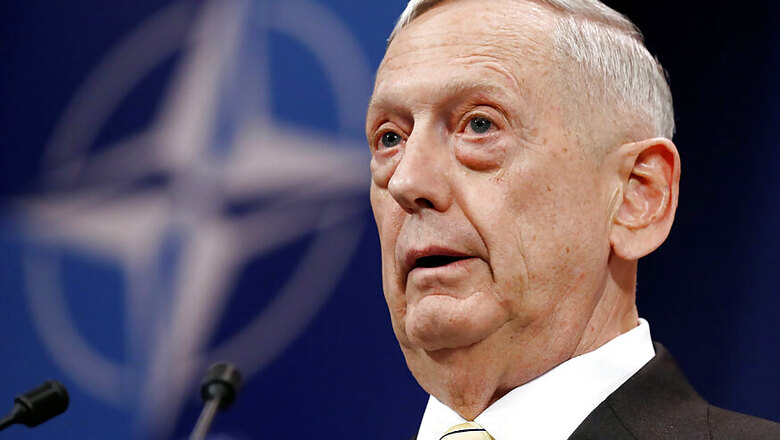
views
4.5 billion from Russia.
Washington: A US Congressional committee on Tuesday proposed waivers for countries like India from punitive sanctions against those doing business with Russia's defence industry.
The Senate and House Armed Services Committee in a joint conference report to the National Defense Authorisation Act (NDAA)-2019 provided a modified waiver to section 231 of the Countering America's Adversaries Through Sanctions Act or CAATSA.
A conference report refers to the final version of a bill that is negotiated between the House of Representatives and the Senate via conference committee.
CAATSA waiver though general in nature is intended at preventing US sanctions on India, which is planning to buy five S-400 Triumf air defence systems for around $
4.5 billion from Russia.
Unlike the existing version of the act, the proposed modified waiver requires presidential certifications designed to protect US alliances, military operations, and sensitive technology, said a statement issued by the Senate Armed Services Committee after the two committees announced details of the conference report.
The John McCain National Defence Authorisation Act for Fiscal Year 2019, which authorises funding for the Department of Defense and the national security programmes of the Department of Energy, encourages US allies and partners to reduce inventory of Russian-produced major defence equipment and advanced conventional weapons.
At the same time, it excludes the possibility of waivers for Russian intelligence agencies and other entities engaged in cyberattacks.
The move comes days after US Defence Secretary Jim Mattis asked the Congress to give the Secretary of State the waiver authority.
"Doing so allows nations to build a closer security relationship with the US as they continue to transition from reliance on Russian military equipment," he said.
"The fundamental question we must ask ourselves is do we wish to strengthen our partners in key regions or leave them with no other option than to turn to Russia, thereby undermining a once-in-a-generation opportunity to more closely align nations with the US vision for global security and stability," Mattis said.
The Pentagon, the State Department and the Indian Embassy here did not immediately respond to request for their comments on the latest CAATSA development.
Before the NDAA 2019 is signed into law by President Donald Trump, the conference report, which aligns the different House and Senate versions of the defense budget, needs to be passed by the two chambers of the US Congress.
Traditionally, it is considered to be a done deal, as this has the support of leadership of both the ruling Republican party and the opposition Democratic party.
The proposed legislative amendments would provide a valid ground to the Trump administration to provide necessary waiver to India, even if it goes ahead with its decision to buy S-400.
India's dependence on Russia for its military hardware has experienced sustained reduction over the last one decade. At the same time, India's defence trade with the US has increased.
India is in the process of placing orders worth of billions of dollars to the US ranging from fighter jets to unmanned drones. Over the past few months, CAATSA had emerged as a major irritant to India-US relationship.
An India-centric top American business advocacy group on Tuesday welcomed the Congressional move.
"The language (of the report) would represent a special carve-out for India on a delicate political issue," Mukesh Aghi, the president of the US-India Strategic and Partnership Forum (USISPF) said.
"If enacted, the language advanced by the NDAA conference committee demonstrates the US Congress' bipartisan commitment to the US-India relationship," said Aghi.
"The exemption provides flexibility for strategic partners and allies to move away from the use of Russian military equipment to American equipment, while ensuring
that US defence and security interests remain protected," the USISPF said.
Early this month, influential US lawmakers had indicated that they were working to get a waiver for India.
The Indian Ambassador to the US, Navtej Singh Sarna, said India was not the target of the federal law and it should not become collateral damage of it. The administration has to find a way in which they can find a waiver for the partner on this particular thorny issue, he had then said.


















Comments
0 comment